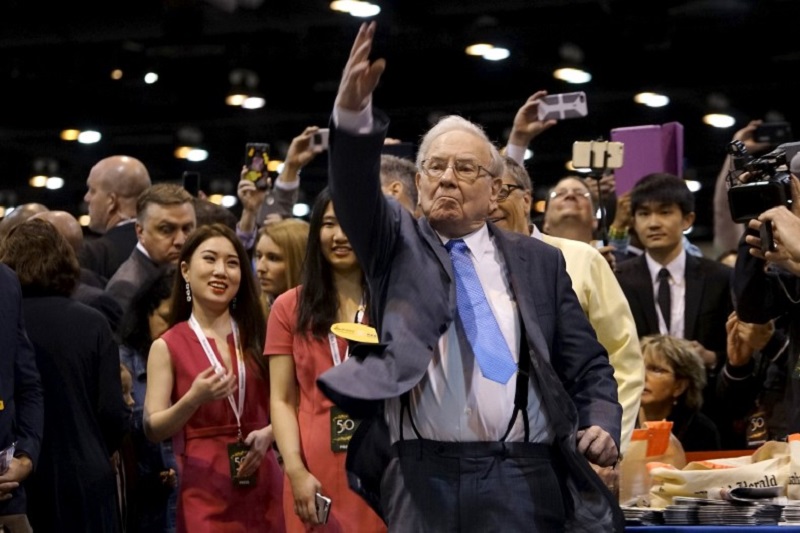This post was originally published on this site
https://i-invdn-com.investing.com/trkd-images/LYNXMPEI7505L_L.jpg
Berkshire said on Saturday that its net loss was equivalent to $29,754 per Class A share. It posted a net profit of $28.1 billion, or $18,488 per Class A share, a year earlier.
Quarterly operating profit rose 39% to $9.28 billion, or about $6,326 per Class A share, from $6.69 billion, or $4,424 per Class A share, a year earlier.
Berkshire also repurchased $1 billion of its own stock in the quarter, and has repurchased $4.2 billion this year. It ended June with $105.4 billion of cash and equivalents.
Investors closely watch Berkshire because of Buffett’s reputation, and because results from its dozens of operating units in the insurance, railroad manufacturing, energy and retail sectors often mirror broader economic trends.
Net results, in contrast, swing wildly because the Omaha, Nebraska-based conglomerate must report investment gains and losses on its stock holdings even if it buys and sells nothing.
That proved a drag in the second quarter, as Berkshire recorded $53 billion of losses from investments and derivatives.
The stocks of three major holdings — Apple Inc (NASDAQ:AAPL), Bank of America Corp (NYSE:BAC) and American Express Co (NYSE:AXP) — each fell more than 21%.
Buffett urges investors to ignore the fluctuations, and Berkshire will make money if stocks rise over time.
In 2020, for example, Berkshire lost nearly $50 billion in the first quarter as the COVID-19 pandemic took hold, but made $42.5 billion for the full year.

